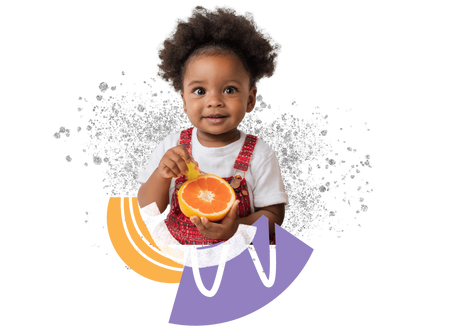Why Nutrition Matters for Toddlers
Toddlers are in a period of rapid growth and development. What they eat directly impacts their physical and cognitive abilities. Proper nutrition is essential for:
- Brain development: Nutrients like omega-3 fatty acids, iron, and zinc are crucial for a toddler's growing brain.
- Strong bones and teeth: Calcium and vitamin D are vital for building strong bones and teeth.
- Healthy immune system: A balanced diet helps protect your toddler from illnesses.
- Energy levels: Proper nutrition provides the energy needed for play and exploration.
While breast milk is the ideal food for infants, toddler formula can be a valuable nutritional supplement, especially for those who cannot or choose not to breastfeed. A high-quality formula, like a plant-based buckwheat flour option, can provide essential nutrients like protein, iron, calcium, and vitamins.
- Organic ingredients: Choosing an organic formula ensures your toddler is consuming fewer pesticides and other harmful chemicals.
- Plant-based options: These can be a suitable alternative for families with dietary restrictions or preferences, or for toddlers with cow's milk allergies.
Important Note: Always consult with your pediatrician to determine the best feeding plan for your child, including the use of toddler formula.
Building Blocks of a Healthy Toddler Diet
A toddler's diet should be a colorful mix of foods from all food groups.
| 🥦 Fruits and vegetables: | Packed with vitamins, minerals, and fiber. Aim for a variety of colors and textures. |
| 🌾 Whole grains: | Provide energy and fiber. Opt for whole-grain bread, pasta, and brown rice. |
| 🫘 Lean protein: | Essential for muscle growth and repair. Include chicken, fish, beans, and tofu. |
| 🥛 Dairy or dairy alternatives: | Provide calcium for strong bones. Offer milk, yogurt, cheese, or plant-based alternatives. |
| 🥑 Healthy fats: | Support brain development. Find them in avocados, nuts, seeds, and olive oil. |
Remember: Every toddler is different. Consult with your pediatrician for personalized dietary advice.
Tips for Healthy Eating
- Be a good role model: Children often imitate their parents' eating habits.
- Offer a variety of foods: Exposure to different tastes and textures encourages healthy eating.
- Make mealtimes enjoyable: Create a positive dining experience.
- Limit sugary drinks and processed foods: These can displace healthier options.
- Listen to your toddler's cues: Respect their appetite and avoid forcing food.

